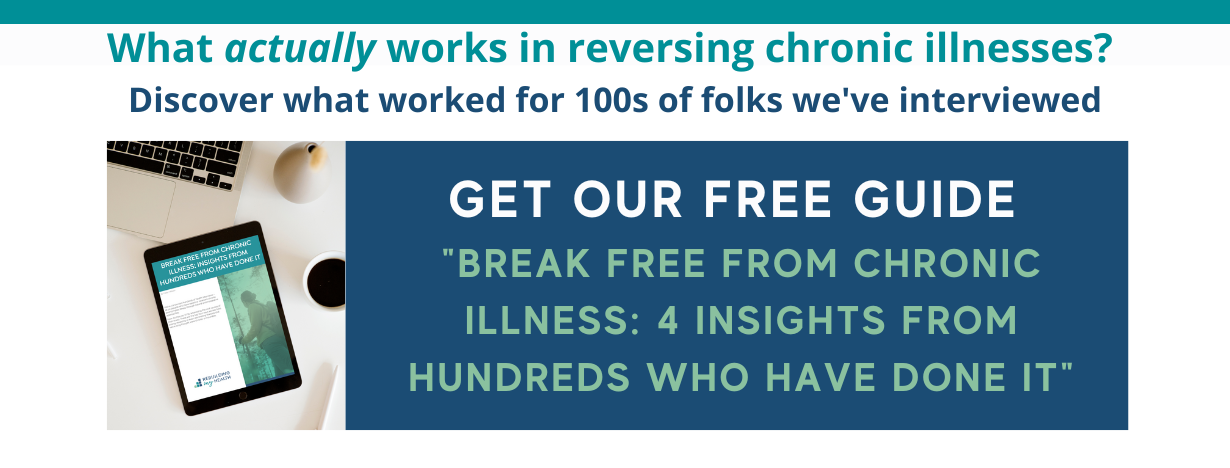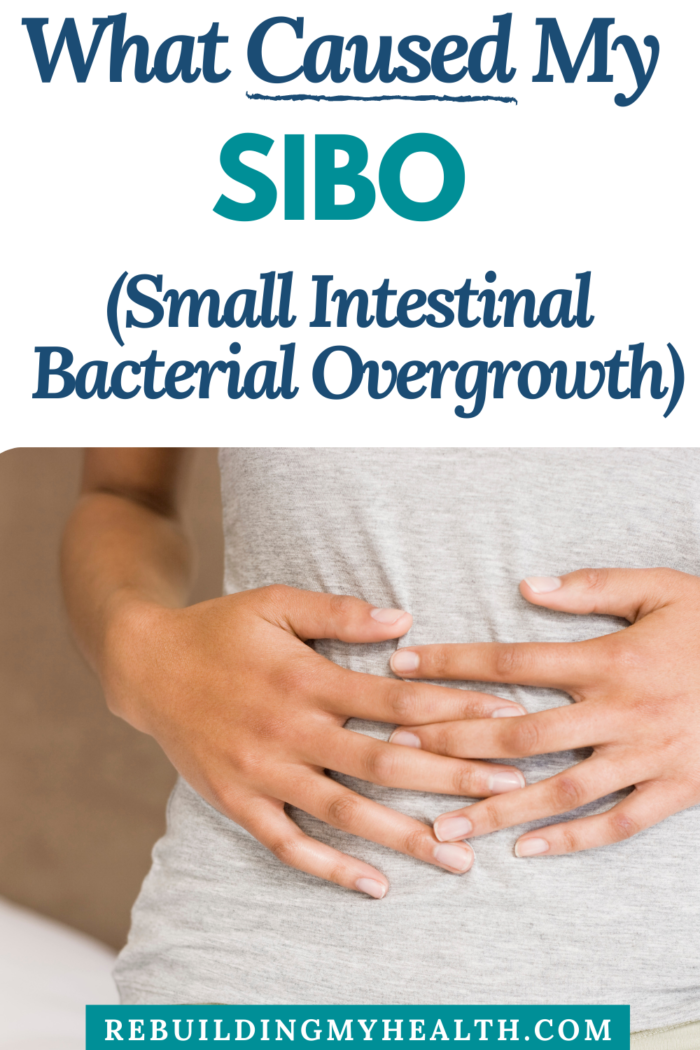When Food Poisoning Leads to Chronic IBS – And Why
It’s rare to get through life without a bout of food poisoning. Most of us go a few rounds on that wheel of torture.
If we’re lucky, we suffer through a day or night of discomfort as the little buggers work their way through our systems. And then, we sleep it off and return to feeling like ourselves.
But sometimes, the effects of food poisoning linger for longer.
I was one of the unlucky.
On a February night in 2015, I woke violently ill, and the misery continued for six to eight hours. It well-surpassed all previous bouts. In those sleepless wee hours, I cursed the leftover smoothie I’d been sipping out of the fridge the past few days.
In the days that followed, I returned to normal…or so it seemed.
But within a month or so, chronic irritable bowel symptoms set in – diarrhea and bloating. This went on for weeks.
My gastroenterologist suspected small-intestinal bacterial overgrowth, or SIBO. With SIBO, bacteria normally only present in other parts of the gut takes up residence in the small intestine.
Doctors can confirm the presence of SIBO with a breath test. So, I showed up early in the morning for the fasting test, drank a sugary substance, breathed into a tube a few times over two hours – and soon learned that I, in fact, had SIBO.
SIBO can look different for people and the symptoms may include…
• Diarrhea
• Gas
• Bloating
• Constipation
• Cramps
• Feeling full after eating small amounts
• Fatigue
• Brain fog
How food poisoning damages the gut
As it turns out, food poisoning is one of the leading causes of SIBO, according to Mark Pimental, MD, head of the Pimentel Laboratory and executive director of the Medically Associated Science and Technology (MAST) Program at Cedars-Sinai. In an interview with Dr. Chris Kresser, Pimental says that food poisoning can trigger an autoimmune process in the gut. The event may damage the interstitial cells of Cajal, which help sweep food through the digestive system.
“When those cells are damaged, motility is damaged,” Pimental says.
Cheri King, a naturopathic doctor specializing in digestive disorders, believes that many factors today make the gut microbiome more susceptible to this kind of dysbiosis – especially when triggered by something like food poisoning.
“Because of chemicals, c-section births, overuse of antibiotics, bad diets and probably genetically modified organisms (GMOs), peoples’ guts can now harbor bacteria that creates toxins,” she says. “An overgrowth of this flora creates the toxin that can create SIBO.”
In fact, some studies indicate that proton-pump inhibitors (PPIs), medications taken for acid reflux, can change the composition of the gut microbiome and make one more susceptible to bad bacteria.
Can you recover from SIBO?
SIBO, fortunately, can be cleared – but it’s not always easy. Some cases respond to herbal anti-microbials while other cases require antibiotics. However, the antibiotics typically used to treat SIBO do not kill the good bacteria your body needs.
Many find relief from symptoms and help eliminating SIBO by following a low-carb diet, such as low FODMAP, the elemental diet or Specific Carbohydrate Diet (SCD). But diet alone doesn’t usually eradicate the problem.
Unfortunately, it often takes a few tries to eliminate SIBO.
In my case, it took four tries. I finally cleared it with a combination of antibiotics (Rifaximin), probiotics (VSL3) and the Specific Carbohydrate Diet, followed by prokinetics (Iberogast and magnesium) to help with motility. The SIBO expert I consulted with suspected that I had not tried the herbal anti-microbials for long enough for them to work.
Avoid food poisoning in the first place
Of course, it’s best if you don’t get food poisoning to begin with. But even the most careful people can still succumb to it.
Follow the usual advice for making sure that meats are cooked, and wash your vegetables and fruit well – even if you don’t plan on eating the skin. Simply cutting through fruit can contaminate it. And don’t forget to give your food the sniff test.
King adds that prevention includes sound eating practices such as taking a digestive aid at the start of a meal, such as apple cider vinegar, hydrochloric acid, digestive bitters or garlic (if you can tolerate it).
“For foreign travel, I have my patients take garlic, thyme and oregano with them to kill those bacteria,” she says.
The bad news, King says, is that those who have gotten food poisoning in the past are more susceptible to suffering from it again.
What if you get food poisoning anyway?
What if you make sound food choices, but STILL get food poisoning? It certainly happens.
Take steps to repair the gut soon after the bout has ended. King points to a study indicating that taking 5g of glutamine three times a day reduced IBS symptoms related to post-infectious IBS by 80 percent, particularly if it’s causing diarrhea.
You might also look at repairing and strengthening the migrating motor complex, the function responsible for creating the digestive “sweeping” motion when you eat. For that, Brie Wieselman, a functional medicine practitioner and acupuncturist, recommends therapies such as abdominal massage, acupuncture or neurological chiropractic.
Odds are, unfortunately, that you’ll get food poisoning at some point. But it doesn’t have to turn into SIBO. Take some of the steps to head it off, and consult a doctor at the first sign that your gut hasn’t returned to normal.
If you found this story helpful, you might also like Colorado Woman Chooses Chinese Medicine to Treat SIBO Successfully.
The information on this site is for educational and inspirational purposes only and is not intended to replace the advice of qualified professionals. Keep in mind that what works for one person may not work for another. Always consult your healthcare practitioners before beginning new approaches or treatments. Some links on Rebuilding My Health may be affiliate links. This means that we may receive a commission - with no additional cost to you - if you make any purchases using those affiliate links. Rebuilding My Health is a participant in the Amazon Services LLC Associates Program. Learn more.



